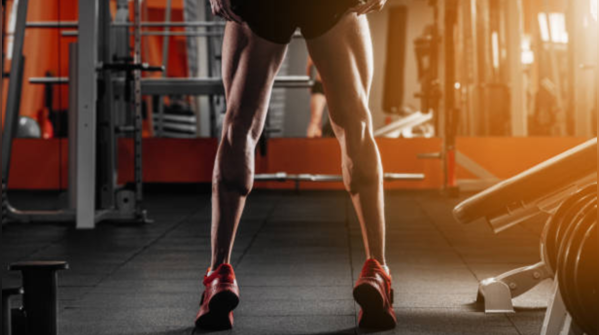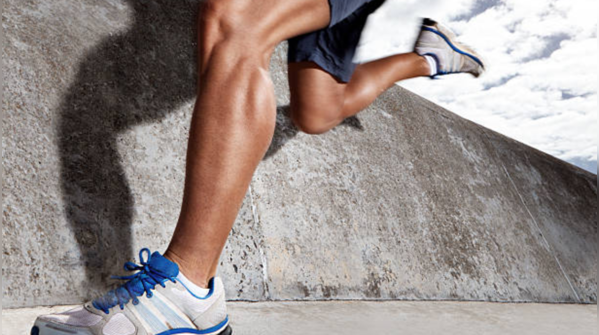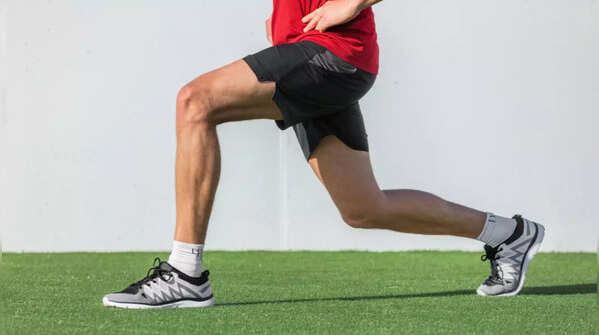- News
- lifestyle
- health-fitness
- fitness
- 5 supplements to support leg muscles for running, jogging and walking
5 supplements to support leg muscles for running, jogging and walking

Natural ways to strengthen leg muscles
If you're someone who runs like the wind, jogs to clear your head, or walks religiously to stay fit, you already know how much your legs matter. They're your support system, your vehicle, and your power source. Whether you are walking 10k steps, enjoying morning park strolls, or just clocking steps to meet your fitness goals, your leg muscles do all the heavy lifting—literally. Even the most committed walkers and runners can face sore calves, stiff thighs, or wobbly knees. And while stretching, hydration, and sleep are non-negotiable, supplements can be game-changers when it comes to building strength, aiding recovery, and preventing injury.
So, let’s dig into the 5 best supplements you should consider to keep those leg muscles strong, energized, and ready for action—no matter your pace!

Magnesium
Magnesium is the unsung hero of muscle recovery. After a long run or a fast-paced jog, you may feel your calves twitch or your thighs cramp up. That’s usually a magnesium deficiency knocking at your door.
Magnesium helps relax tight muscles and prevents cramps, supports electrolyte balance, which is essential for endurance athletes and improves sleep quality, which speeds up muscle recovery.
Go for magnesium glycinate or citrate—they’re easier on the stomach and better absorbed.

Creatine
Creatine isn’t just for guys trying to bulk up. In fact, it’s one of the most well-researched supplements for boosting muscular strength, endurance, and energy. Even if your goal is to run smoother, jog longer, or walk pain-free, creatine is a serious contender.
Creatine increases muscle energy by fueling ATP (your muscle's power currency), helps you recover faster between sprints or hill climbs and may reduce muscle fatigue during longer runs.

Collagen and Vitamin C
If you've ever had joint stiffness or dreaded the downhill stretch of a run, this duo is for you. Collagen is the structural protein that supports your joints, tendons, and ligaments—basically everything that holds your leg muscles in place. This powerful combination strengthens connective tissues like knees, ankles, and hips. It reduces the risk of tendon injuries and ligament tears and supports overall muscle recovery and reduces soreness.

BCAAs (Branched-Chain Amino Acids)
Leg day isn’t just for the gym bros. Whether you're climbing a steep hill or walking an extra 3,000 steps, your leg muscles are constantly engaging. That’s where BCAAs—Leucine, Isoleucine, and Valine—come in.
They prevent muscle breakdown during long runs or intense walks, reduce muscle soreness after high-impact activity and improve muscle endurance and energy.
Mix 5–10g of BCAAs into your water bottle and sip it before or during your workout. Pick a clean brand without artificial sweeteners or unnecessary fillers.

Omega-3 fatty acids
Running, jogging, or walking might feel easy, but they all create micro-tears in your muscles. That’s natural. But if you don’t let those tears heal properly, it can turn into chronic soreness or inflammation. Enter: omega-3s, your built-in body repair system.
It reduces inflammation in leg joints and muscles, supports faster recovery and less post-exercise pain and also boosts muscle protein synthesis, helping you gain lean muscle.
Start slow, try one or two supplements based on your current needs, and see how your legs respond. And remember, always check with a healthcare provider before starting any new supplement—especially if you have health conditions or are on medication.

Common mistakes to avoid
Whether you're running, jogging, or walking, avoid common mistakes to prevent injury and boost results. Skipping warm-ups or cool-downs is a big no—your muscles need prep and recovery. Wearing the wrong shoes can lead to foot, knee, or back pain. Don’t slouch—maintain good posture with relaxed shoulders and engaged core. Overstriding or landing heavily on your heels increases impact and strain. Avoid inconsistent pacing or doing too much too soon, especially if you're a beginner. Stay hydrated, but don’t overdrink mid-run. Lastly, listen to your body—ignoring pain or fatigue can turn minor issues into major setbacks.

Boost your leg strength with the right support
To keep your legs strong and active, whether you're running, jogging, or just walking daily-- adding the right supplements can make a real difference. Think of them as backup support for your muscles, helping with strength, recovery, and endurance. Of course, they work best when paired with a balanced diet, regular exercise, and plenty of hydration.

Why is muscle health important?
Muscle health is paramount for overall well-being, acting far beyond just physical strength. Adequate muscle mass supports a higher metabolism, aiding in weight management and preventing obesity. Muscles play a crucial role in insulin sensitivity, thus regulating blood sugar levels and reducing the risk of type 2 diabetes. Strong muscles contribute to better balance, coordination, and stability, significantly lowering the risk of falls and injuries, especially as we age.








